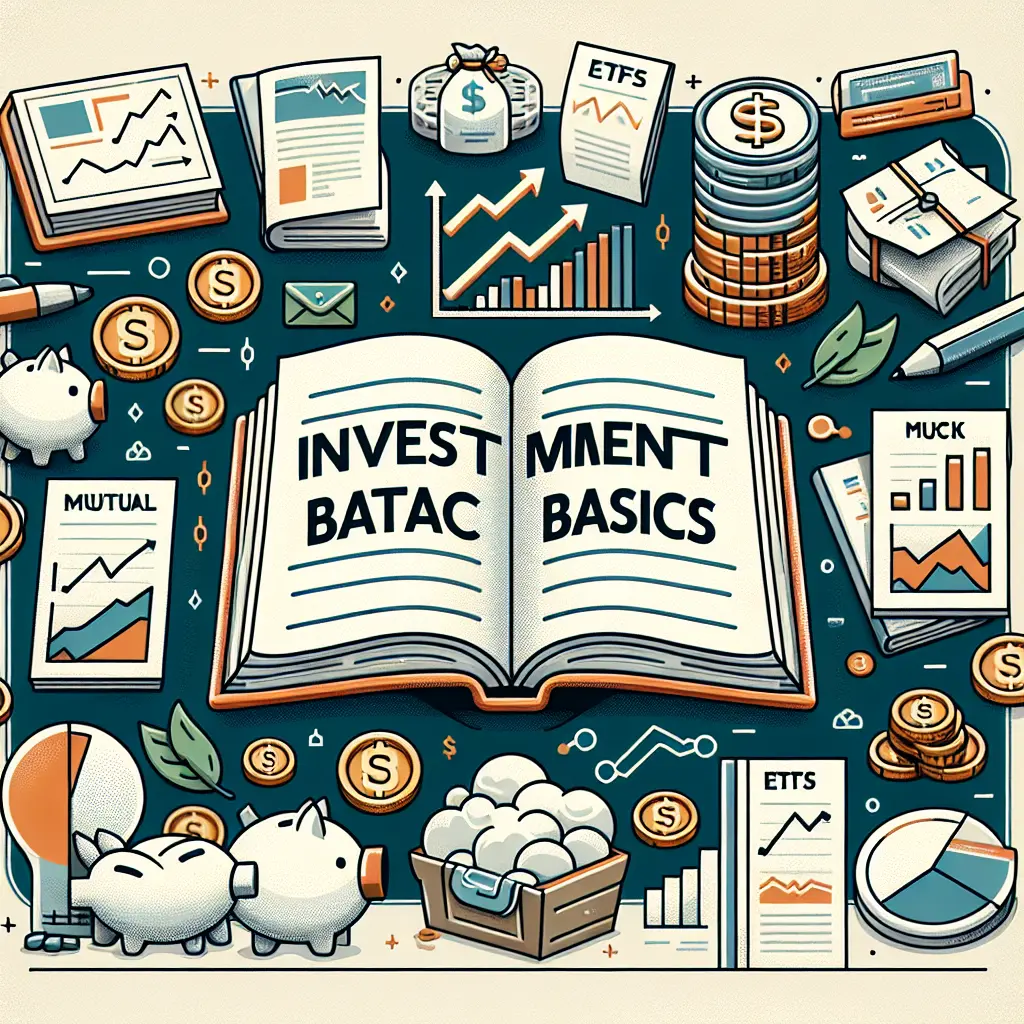
Welcome to the world of investing! If you're new to managing your finances or looking to diversify your investment portfolio, understanding mutual funds and ETFs (Exchange-Traded Funds) can be a game-changer. In this comprehensive guide, we'll explore the basics and benefits of these investment vehicles, helping you make informed decisions whether you're planning for retirement or aiming to build wealth.
What Are Mutual Funds?
Mutual funds are investment vehicles that pool money from multiple investors to purchase a diversified portfolio of stocks, bonds, or other securities. Each shareholder participates proportionally in the gains or losses of the fund. Mutual funds are managed by professional money managers, who allocate the fund's assets and attempt to produce capital gains or income for the fund's investors (Investopedia).
What Are ETFs?
ETFs, or Exchange-Traded Funds, are similar to mutual funds in that they also represent a collection of securities. However, ETFs differ because they are traded on stock exchanges much like individual stocks. This means they offer higher liquidity and lower fees than mutual funds. Additionally, ETFs often have lower expense ratios and are more tax-efficient (The Balance).
Mutual Fund Basics and ETF Basics
Investing in mutual funds involves understanding various types such as equity funds, bond funds, and money market funds. Each type targets different risk profiles and investment goals. On the other hand, ETFs provide exposure to an index or commodity and enable investors to buy into a broad sector performance with a single transaction.
How to Invest in Mutual Funds and ETFs
For beginners, starting with mutual funds or ETFs can be as simple as setting up an investment account through a brokerage. Online platforms now make it easier than ever to open accounts, with some offering guided portfolio services that suggest suitable investments based on your risk tolerance and goals (Forbes).
Mutual Fund Investment Guide and ETF Investment Guide
When choosing which type of fund to invest in, consider factors like financial goals, investing timeline, risk tolerance, and the fees associated with each fund. It’s important to research and understand the fund's focus and how it aligns with your overall financial planning strategy.
Benefits of Mutual Funds and Benefits of ETFs
Mutual funds offer professional management and diversification. For those who may not have the expertise or time to manage their investments, this can be particularly beneficial. ETFs provide flexibility; they can be bought and sold at any time during the trading day. They are excellent for gaining exposure to a wide array of investments without having to purchase each one individually.
Mutual Fund vs ETF
Choosing between a mutual fund and an ETF often comes down to personal preference and financial goals. Mutual funds are ideal for investors who prefer leaving investment decisions to a manager. ETFs might suit those looking for lower fees and greater control over when they buy and sell.
Choosing Mutual Funds and Choosing ETFs
Consider performance history, fee structure, fund management, and alignment with your investment goals when selecting funds. Websites like Morningstar provide detailed fund analyses that can aid in decision-making (Morningstar).
Financial Planning and Retirement Investing
Both mutual funds and ETFs can play critical roles in retirement planning due to their potential for growth and income generation over time. They allow investors to build diversified portfolios that can mitigate risk while aiming for long-term financial goals.
Diversified Investments
Diversification is key to effective investment strategies. By investing in different asset classes through mutual funds and ETFs, you can protect against significant losses if one sector of the market underperforms.
Recent News and Updates
- Investing in citizenship by investment programs can be costly but offers the privilege of a second passport (Citizenship by Investment).
- With political climates influencing market conditions, companies are advised to rethink their investment strategies this election year (Financial Times).
- Financial guru Ramit Sethi points out common wealth-building mistakes young investors make (CNBC).
- Alphabet’s massive investment in Waymo highlights the growing importance of autonomous driving technology (Bloomberg).
- Personal stories like those about long-distance relationships inform us about global connections and their impacts (Personal Blog).
- The lack of financial education in schools underscores the need for parents to teach financial literacy at home (Parenting Magazine).
- Niche investments like those in emerging technologies such as Rust programming language show promising returns (TechCrunch).
- Strategic dividend investments in companies like CVS Health and Gilead Sciences could lead to substantial returns (MarketWatch).
- Learning about cryptocurrencies through platforms like 99Bitcoins offers lucrative opportunities as the digital currency market evolves (99Bitcoins).
- Real estate remains a viable path for generating passive income and building wealth, as evidenced by personal success stories (Real Estate Blog).
In conclusion, whether you opt for mutual funds or ETFs depends on your financial objectives, investing style, and risk tolerance. These vehicles offer unique advantages that can help you achieve diversified, resilient investment portfolios suited for long-term growth and stability.
Thank you for joining me on this exploratory journey into the realms of mutual funds and ETFs. Here's to making empowered and informed investment choices that pave the way for financial success!
Warm regards,
Gabriella Knox